What You All Need to Know About Residential Electrician?
What is a Residential Electrician?
A residential electrician is a skilled tradesperson specializing in the electrical systems within residential settings such as houses, apartments, and condos. The definition of a residential electrician extends to those who design, install, maintain, and repair the electrical infrastructure that powers devices, lighting, and systems used daily by homeowners.
Key roles of a residential electrician include:
- Assessing the electrical needs of a home and planning the necessary infrastructure
- Installing new electrical systems or updating outdated ones to meet current standards
- Regularly inspecting electrical components for signs of wear or potential failure
- Troubleshooting issues that arise with circuit breakers, wiring, or electrical appliances
- Ensuring that all work adheres to local building codes and safety regulations
The expertise of residential electricians is crucial for not only setting up functional and efficient electrical systems but also for preserving the safety and wellbeing of residents by preventing hazards like electrical fires or shocks. Their role requires a deep understanding of how electricity works within the home environment and how best to deliver safe, reliable power where it's needed.
Why is Electrical Work Crucial for Residential Buildings and Homes?
Electrical work is essential for every residential building. It plays a vital role in ensuring safety and energy efficiency.
1. Safety Comes First
Residential electricians are responsible for keeping homes free from electrical dangers. They:
- Install, maintain, and repair electrical systems
- Identify potential risks like electric shocks, fires, or electrocutions
One example of a potential hazard is faulty wiring. It can cause overheating and lead to an electrical fire. A residential electrician would spot this issue early on, replace the faulty wiring, and ensure the entire system works safely.
2. Boosting Energy Efficiency
Residential electricians also contribute to making homes more energy-efficient. They:
- Optimize electrical installations to minimize energy consumption while maintaining functionality
- Ensure proper installation of energy-efficient appliances and LED lighting
By using these energy-saving solutions correctly, homeowners can significantly reduce their electricity usage. This not only helps the environment but also leads to cost savings on utility bills.
In summary, residential electricians do more than just handle electrical installations or repairs. Their role is crucial in creating safer and more energy-efficient homes.
Education, Training, and Skills Required to Become a Residential Electrician
Embarking on a career as a residential electrician requires both formal education and hands-on training. Here's what you need to know:
High School Education
The journey usually begins with completing high school, where you'll focus on subjects like mathematics and physics. These subjects lay the foundation for understanding electrical principles.
Formal Education and Apprenticeship Programs
After high school, many aspiring residential electricians choose to enroll in vocational or technical schools. These institutions offer courses that cover essential topics such as:
- Electrical theory
- Blueprint reading
- Safety practices
- Building codes
However, it's important to note that classroom learning alone is not enough. To truly excel in residential electrical work, you must also gain practical experience. This is where apprenticeship programs come in.
During an apprenticeship, you'll have the opportunity to learn directly from experienced professionals on real job sites. This hands-on training is invaluable for developing your skills and understanding the nuances of the trade. Apprenticeships typically last for four to five years and include a wage for your work.
Certification Exams and Licensing
Once you've completed your apprenticeship, the next step towards becoming a certified residential electrician is passing exams. These tests are often conducted by state or local government agencies and assess your knowledge of:
- Electrical theory
- National electrical code (NEC)
- Local building codes and regulations
Successfully passing these exams will earn you your certification as a residential electrician. However, it's important to research the specific licensing requirements in your area, as they can vary. Some states may require additional experience or exams beyond the standard certification process.
Remember - becoming a professional residential electrician isn't just about acquiring knowledge; it's also about developing practical skills and prioritizing safety. This profession combines technical expertise with critical thinking and problem-solving abilities, preparing you for a rewarding career dedicated to ensuring homes are both secure and energy-efficient.
1. Installing and Maintaining Electrical Systems as a Residential Electrician
A residential electrician is responsible for both installing and maintaining electrical systems in homes. This includes new installations, upgrades to existing systems, and regular inspections to ensure everything is working properly. In this section, we will explore the tasks involved in installing and maintaining electrical systems and why it is essential to hire a professional for these jobs.
The Importance of Proper Installation and Maintenance
Ensuring Functionality
An expertly installed electrical system is crucial for the smooth operation of all electrical appliances in a home. From lights and fans to kitchen appliances and entertainment devices, every electrical component relies on a well-functioning system to work correctly. A residential electrician has the knowledge and experience to install wiring, outlets, circuit breakers, and other components accurately, ensuring optimal functionality throughout the house.
Promoting Safety
Safety is paramount when it comes to electricity. Faulty wiring or outdated electrical systems can pose significant risks such as electrical shocks, fires, or even electrocution. By hiring a residential electrician for installation and maintenance tasks, homeowners can have peace of mind knowing that their electrical systems are up to code and meet safety standards. These professionals are well-versed in local regulations and adhere strictly to them during every job they undertake.
Tasks Involved in Installing and Maintaining Electrical Systems
Here's a closer look at what the installation and maintenance of electrical systems involve:
- Planning: A residential electrician begins by evaluating the needs of the home, considering factors such as size, number of rooms, types of appliances, and anticipated electricity usage.
- Installation: The next step is installing wiring, outlets, circuit breakers, and other components based on this plan.
- Testing: Once installed, each component is tested to guarantee its correct operation.
A well-rounded maintenance program complements these installation services. Regular inspections are fundamental to maintaining an efficient and safe electrical system. During these inspections, residential electricians look out for any issues that could potentially escalate into significant problems if left unattended.
As part of maintenance work, faulty components identified during inspections are replaced promptly, ensuring the smooth operation of all electrical elements in the house. This proactive approach helps prevent more severe issues down the line that could lead to extensive—and expensive—repairs.
In summary, the installation and maintenance of electrical systems by a residential electrician are crucial for any home. These professionals possess the expertise to:
- Install new systems or upgrade existing ones
- Conduct thorough inspections
- Replace faulty components promptly
All while ensuring compliance with safety standards and building codes.
The subsequent section will delve into another critical aspect of a residential electrician's role—wiring and fixture installation. This discussion will further highlight the wide-ranging skills these professionals bring to their work and underscore why their services are indispensable for every homeowner.
2. Wiring and Fixture Installation by Residential Electricians
When it comes to your home's electrical needs, wiring and fixture installation are two crucial aspects that require the expertise of a residential electrician. These tasks are essential not only for ensuring the proper functioning of your electrical system but also for enhancing the overall look and feel of your house.
Understanding Different Types of Wiring Used in Residential Properties
Residential electricians work with various types of wiring, each designed for specific applications:
- Non-Metallic (NM) Cable: Also known as Romex, this is the standard wiring used in homes. It consists of multiple individual wires encased in a protective plastic coating. NM cable is typically used in dry areas indoors and is relatively easy to install.
- Underground Feeder (UF) Cable: Similar to NM cable but specially designed for wet locations and direct burial without the need for conduit. UF cable is commonly used for outdoor lighting and supplying power to structures outside the main house.
- THHN/THWN Wire: These letters indicate the insulation properties of the wire and are often used inside conduit. THHN/THWN wire is highly durable and suitable for both indoor and outdoor applications where moisture exposure is possible.
Each type of wiring serves a specific purpose in residential settings, ensuring safe and efficient delivery of electricity to different areas of your home.
The Importance of Proper Fixture Installation in Homes
Fixtures refer to the visible components of your electrical system, such as lights, ceiling fans, and outlets. The way these fixtures are installed can have a significant impact on both the aesthetics and functionality of a room. Here's why proper fixture installation matters:
- Enhanced Illumination and Interior Design: Well-placed fixtures can effectively brighten up a space while complementing its overall design theme.
- Support for Energy-Efficient Lighting: Correct installation ensures that energy-saving bulbs or fixtures work optimally, helping you reduce electricity consumption.
- Ensured Safety and Reliability: By following industry-standard installation practices, residential electricians create secure connections that minimize the risk of electrical problems like flickering lights or power surges.
Common Types of Wiring Encountered in Residential Electrical Projects
When working on older homes or specific areas with unique requirements, residential electricians may come across different types of wiring:
- Single-Strand Wire: This type of wiring is often found in older properties but may need to be updated to meet current electrical codes and safety standards.
- Multi-Strand Wire: Offering greater flexibility and durability, multi-strand wire is commonly used in areas where movement or vibrations are expected, such as appliances or machinery.
Residential electricians must assess the existing wiring and determine whether any updates or replacements are necessary to ensure optimal performance and safety.
The Role of Technical Drawings and Blueprints in Residential Electrical Projects
Before starting any electrical work, residential electricians rely on technical drawings and blueprints to understand the layout and specifications of the project. These detailed plans serve several purposes:
- Guidance for Wiring System Layout: By referring to the drawings, electricians can accurately map out the placement of wires and electrical components in different areas of the house.
- Early Identification of Potential Issues: Reviewing the blueprints allows electricians to spot any potential problems related to spacing constraints or obstructions before installation begins, avoiding costly delays or rework.
- Coordination with Other Building Systems: Understanding the location of plumbing pipes, HVAC ducts, or structural elements through the blueprints enables electricians to coordinate their work effectively with other professionals involved in the construction process.
Collaboration with Architects and Contractors Based on Provided Blueprints
Successful electrical work in residential projects often requires collaboration among various stakeholders. Residential electricians work closely with architects, who conceptualize the design of the house, and contractors, who handle the actual construction. Through effective collaboration, these professionals ensure:
- Integration of Electrical Systems with Structural Elements: By closely coordinating with architects, electricians can ensure that wiring and fixtures are seamlessly incorporated into the overall design without compromising its integrity.
- Adaptation of Plans to Meet Safety Requirements: In cases where modifications to the original blueprints are necessary for practical or safety reasons, electricians and contractors work together to find suitable solutions that comply with both regulations and homeowner preferences.
- Final Installation that Meets Expectations: By following the provided blueprints and maintaining open communication throughout the project, all parties involved can ensure that the end result aligns with the homeowner's vision while meeting quality standards.
Understanding these various aspects of wiring and fixture installation highlights why it's crucial to engage professional residential electricians for any electrical project in your home. Their expertise not only ensures optimal functionality but also adds value through thoughtful integration into your living space's design.
Ensuring Safety Through Inspection, Troubleshooting, and Adherence to Regulations
Safety is the top priority for residential electricians, and conducting regular inspections is key to preventing electrical hazards. These professionals meticulously examine electrical systems to uncover issues that could pose risks. They look for overloaded circuits, faulty wiring, or any signs of wear and tear that could lead to malfunctions or, worse, fires.
Troubleshooting is another critical aspect of a residential electrician's duties. They use various diagnostic techniques to quickly identify the main cause of electrical problems. This process often includes:
- Testing electrical components with specialized equipment
- Understanding complex wiring diagrams
- Methodically isolating sections of the electrical system
Once identified, these issues are resolved with precision to restore safe operation.
Adherence to safety regulations is non-negotiable for residential electricians. They stay updated on the latest building codes and safety standards to ensure their work meets legal requirements. Moreover, using protective equipment like insulated gloves, goggles, and face shields is standard practice while on the job. By following these protocols, electricians safeguard not only the residents but also themselves from potential injuries.
In maintaining these high standards of safety and professionalism, residential electricians play a vital role in keeping homes powered and protected.
Conclusion
When it comes to home improvements or building your dream house, understanding the role of a residential electrician is crucial for the smooth operation of all electrical power-related aspects. The main focus should always be on safety and efficiency.
- Safety First: Your home should be the place where you feel the safest. However, even a small mistake in electrical installations can lead to significant risks. That's why it's important to always consult professionals for any electrical work needed in your home. It's not just about getting the job done; it's also about ensuring that it's done safely.
- Hire Qualified Professionals: It's important to remember that not all electricians have the same level of expertise. A residential electrician specializes in working with household electrical systems. They have undergone extensive training, gained practical experience, and passed certification exams. Their knowledge and skills are what guarantee that your home's electrical systems will function optimally and safely.
- Efficient Use of Electrical Power: In addition to safety, a certified residential electrician can also help you make better choices when it comes to using electricity in your home. They can provide guidance on energy-efficient solutions, such as LED lighting or smart thermostats, which can lead to long-term cost savings while reducing your environmental footprint.
So the next time you encounter an electrical issue or plan on upgrading your home's electrical systems, don't hesitate to reach out to a qualified residential electrician. Their expertise can not only save you from potential hazards but also ensure that you're making the most efficient use of electrical power in your home.
FAQs (Frequently Asked Questions)
What is a Residential Electrician?
A residential electrician is a professional who is responsible for ensuring the proper functioning of electrical systems in homes. They play a crucial role in installing, maintaining, and inspecting electrical systems to ensure safety and functionality.
Why is Electrical Work Crucial for Residential Buildings and Homes?
Electrical work is crucial for residential buildings and homes because it ensures safety, prevents electrical hazards, and maintains energy efficiency. Proper electrical installations and maintenance are essential for the overall well-being of the residents and the property.
Education, Training, and Skills Required to Become a Residential Electrician
Becoming a residential electrician requires formal education, apprenticeship programs, specific hours of hands-on experience, and passing certification exams. These requirements are essential for acquiring the necessary skills and knowledge to perform the duties of a residential electrician effectively.
Installing and Maintaining Electrical Systems as a Residential Electrician
As a residential electrician, it is important to have expertise in installing new electrical systems or upgrading existing ones for residential properties. Regular inspections should also be carried out to ensure the safety and functionality of electrical systems. Compliance with safety standards and building codes is crucial during installations, along with identifying and replacing faulty components during maintenance works.
Wiring and Fixture Installation by Residential Electricians
Residential electricians encounter different types of wiring used in residential properties and must understand their applications. Proper fixture installation is significant for both aesthetics and functionality in homes. It's also important for them to work with technical drawings and blueprints, as well as collaborate with other professionals such as architects and contractors based on provided blueprints.
Ensuring Safety Through Inspection, Troubleshooting, and Adherence to Regulations
Residential electricians conduct thorough inspections to detect potential electrical issues before they become hazards. They also utilize essential troubleshooting techniques to identify and resolve problems while adhering to safety regulations and utilizing protective equipment during work.

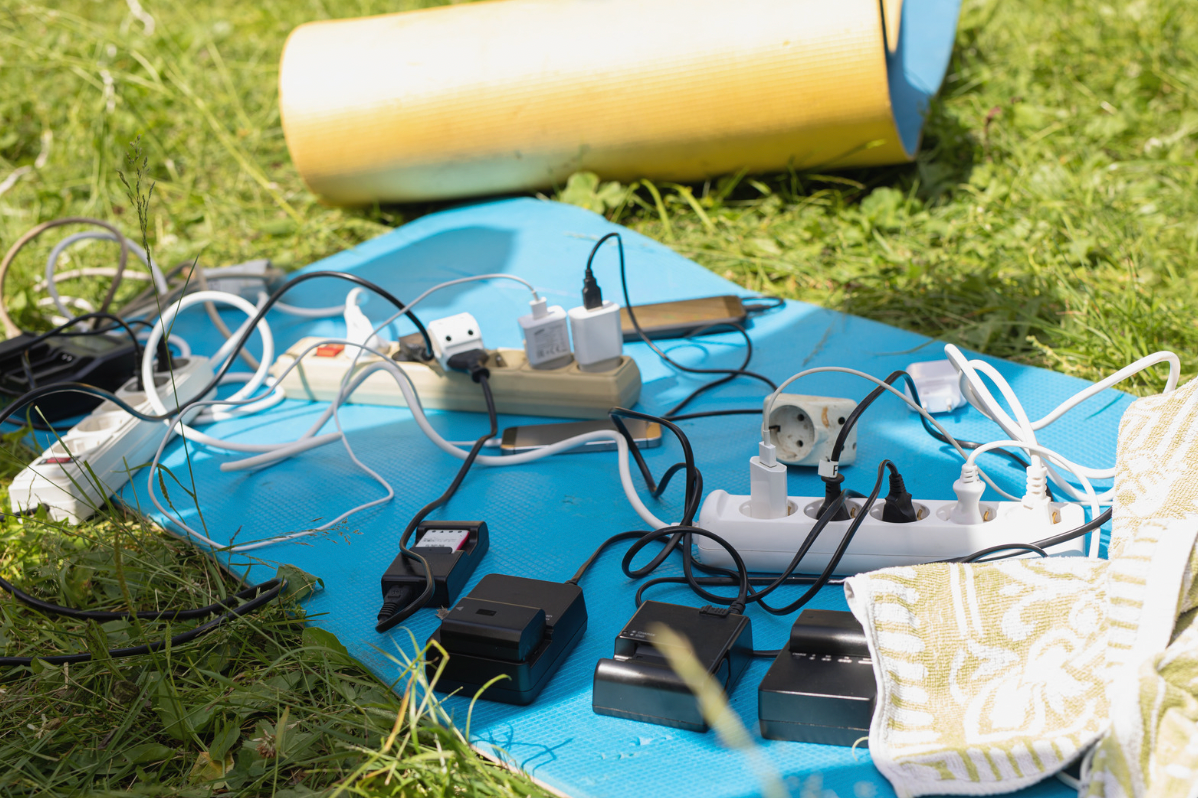
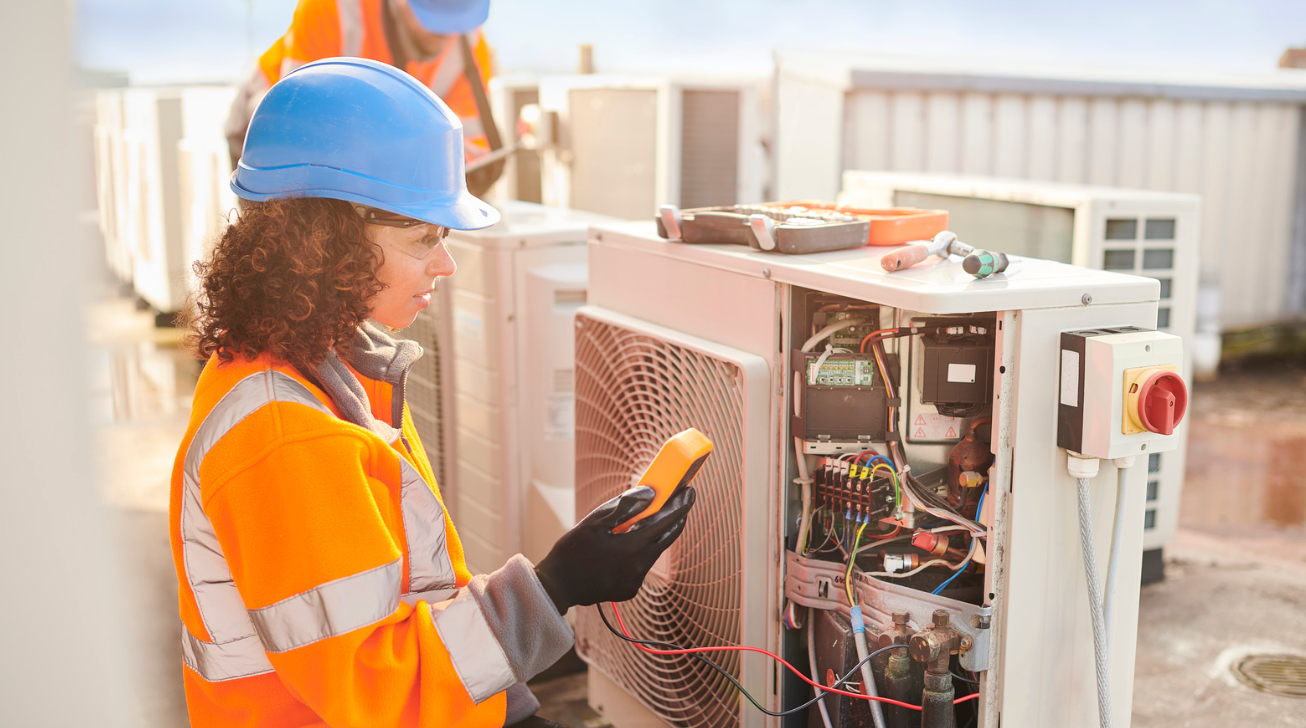
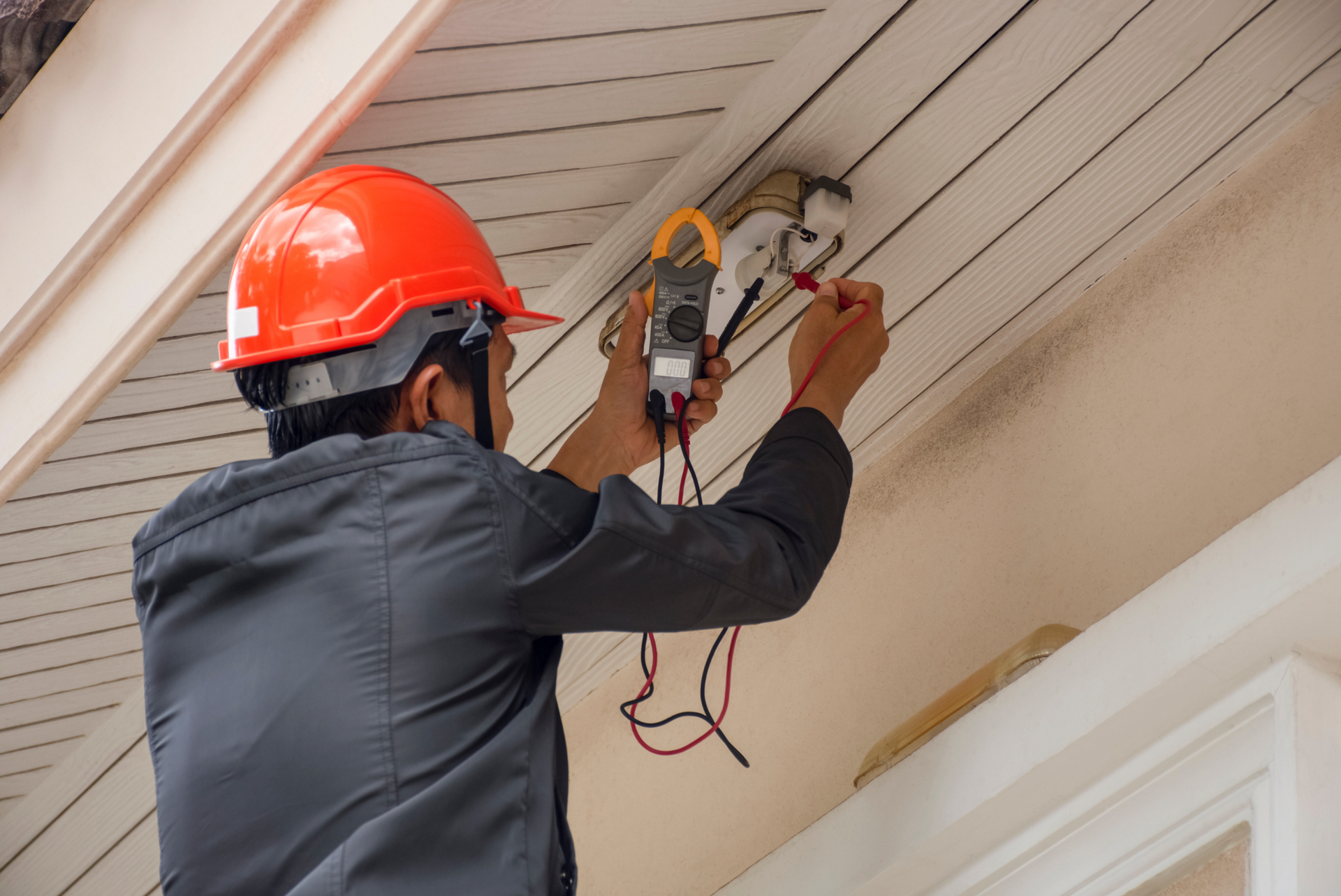
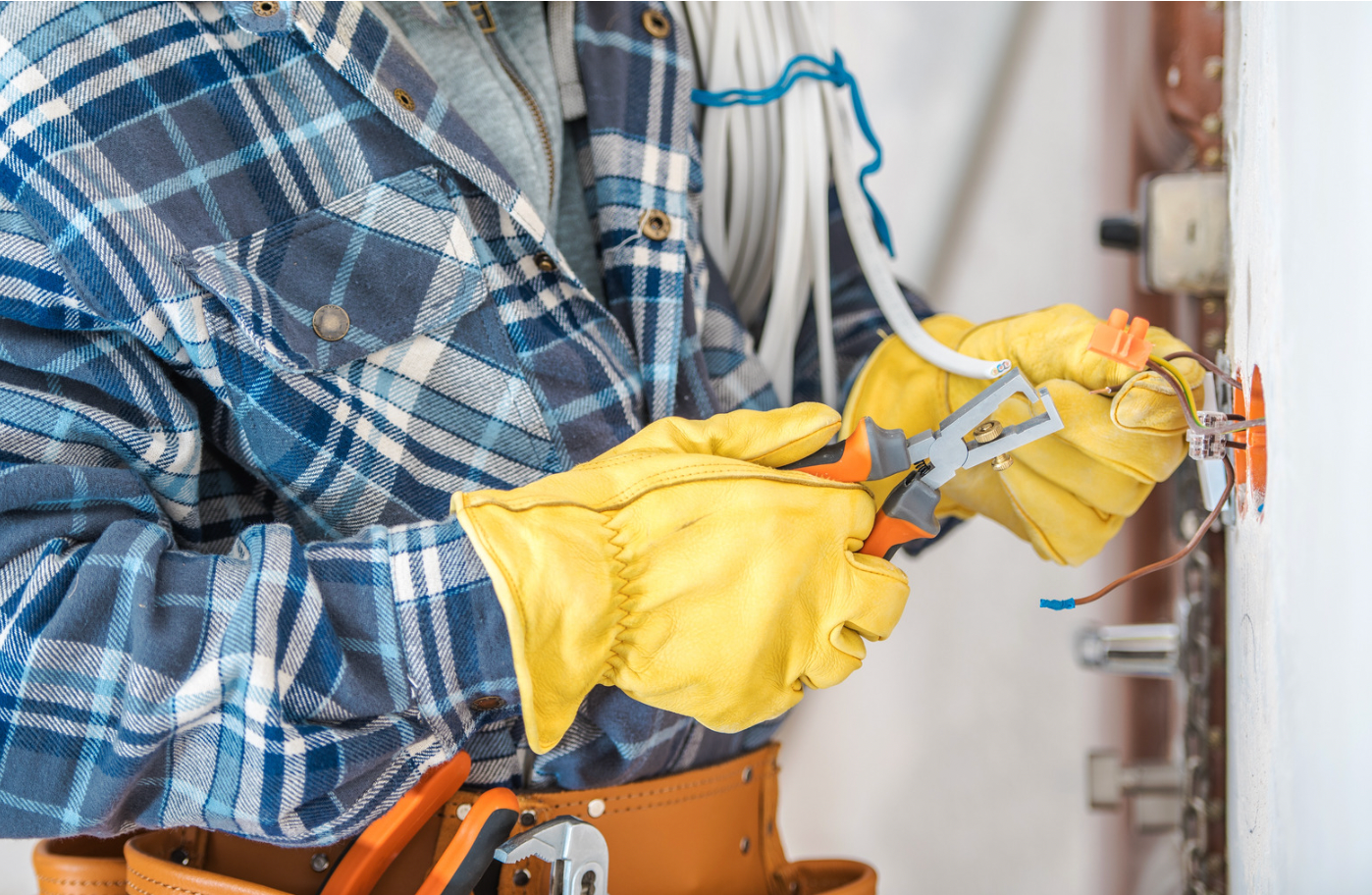
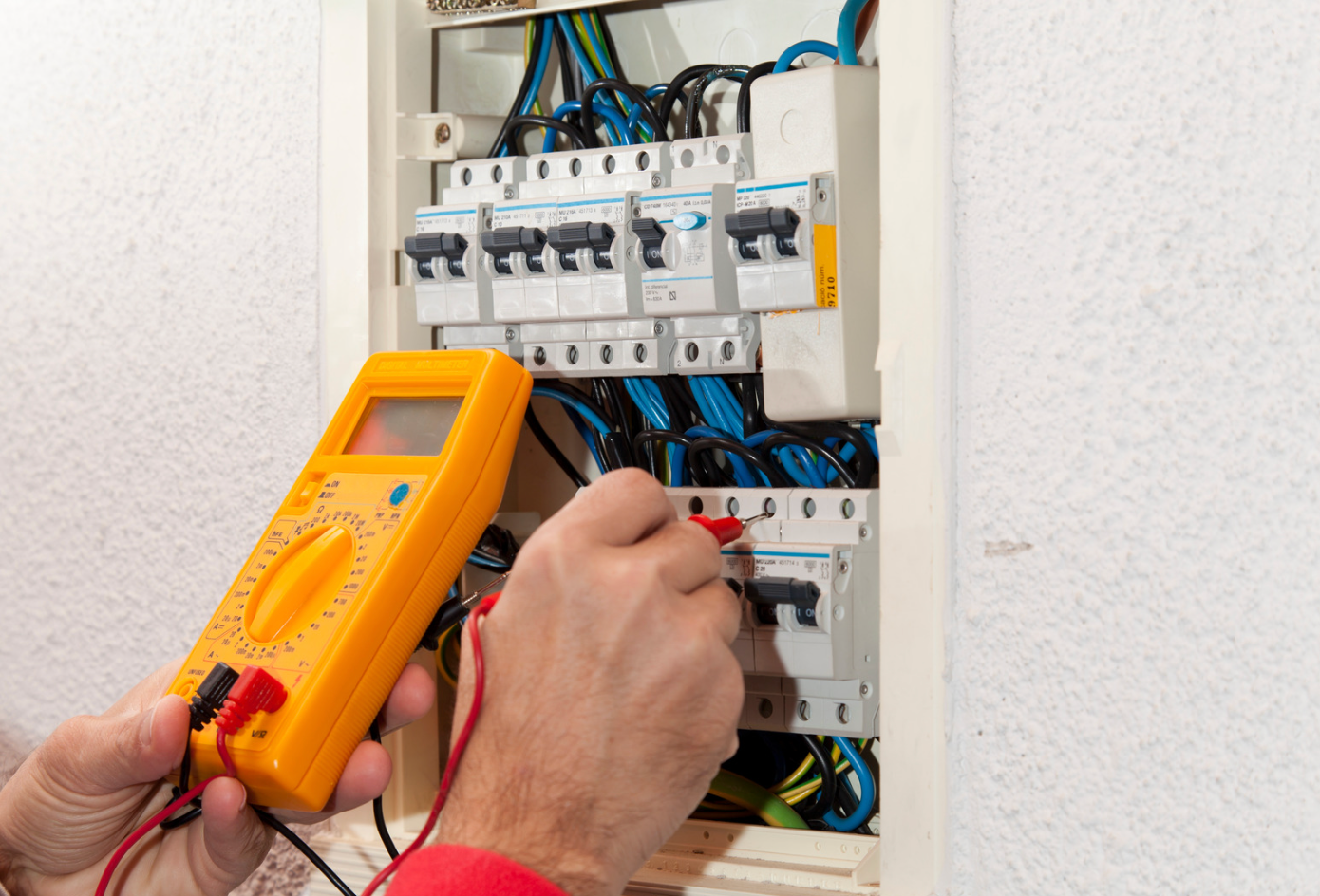







Share On: